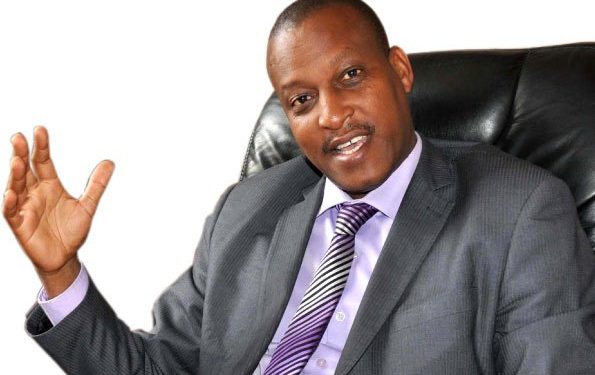By Jotham Taremwa
Social media refers to the use of web-based mobile digital technologies to turn communication into highly interactive dialogue, and covers blogs and microblogs such as Twitter, content communities such as YouTube, social networking sites like Facebook and (cell-based) cross-platform instant messaging applications like WhatsApp Messenger.
During the past fifteen years, social media has changed every facet of communications; significant amount of information and communications work has migrated from conventional media platforms (print and electronic media) to digital social networks. Dynamic organisations and businesses have already tapped into the massive opportunities in digital media, and particularly, social media.
The Government of Uganda approved a Government Communication Strategy (2012) which guides ministries, departments and agencies (MDAs) on use social media to communicate government policies, programmes and activities. New (social) media is considered by Government as an effective platform in facilitating implementation of constitutional provisions relating to right of access to information.
To support the above, Uganda Communications Commission and sister regulatory authorities have formulated necessary (regulatory) framework to guide the use of new media, which helps service providers and users to curb potential excesses of digital technologies.
As a modern and progressive institution, the Electoral Commission has taken deliberate steps to integrate digital technologies in our organizational information and communication structure.
The Department of Public Relations and the Department of Information Technology have been particularly positioned to provide leadership in this integration, with satisfactory results.
The Commission has further provided for training of all field election officials with knowledge and skills to utilize social media in the course of their duties.
Electoral Commission Social Media Strategy
In 2015, the Electoral Commission adopted a social media strategy to guide the institution in utilizing new digital technologies and social media to reach increasing diverse audience, as outlined in the following indicators:
The official EC Twitter account @UgandaEC was activated and a hashtag #AskEC2016, became a channel for the voters to ask questions and raise concerns, a forum where queries about the electoral process could be addressed;
The Facebook page Electoral Commission Uganda was activated and gained followers who used the platform to raise inquiries and received responses. The Commission used the platform to post updates on the electoral process;
The Commission created a Whatsapp group (EC Media Center) for media personnel accredited to cover the 2016 General Elections. The platform facilitated timely updates on the electoral process, as well as prompt responses to press inquiries, and provision of necessary clarification and guidance;
The Commission hosts a functional website where information related to the electoral process (statistics, press releases and guidelines), administrative (jobs) and logistics matters (tenders), can be easily accessed by various stakeholders;
The National Voters’ Register was uploaded on the website to facilitate easy access for voters who have access to the internet using either smartphone or a desk top. The benefits of this innovation include online checking of (individual) voter’s registration status; availability of the Register for verification by interested stakeholders (parties, etc); free access to the Register hence saving costs on the part of stakeholders; increased voter/stakeholder participation in the cleaning process; and, enhanced transparency in the electoral process.
During the 2016 General Elections, the Commission used SMS to inform voters about their voting status and their respective polling stations. This was achieved by broadcasting the voters’ voting details for voters who had indicated their telephone numbers during the National ID registration exercise. The SMS service also enabled registered voters confirm the details of their polling stations from a mobile phone by texting his/her voter Id number to code 8228 to get a confirmation message of their registration status;
The Electoral Commission regional and district offices have been connected to the internet to enable use of web-based platforms for information and communication and stakeholder engagement;
This social media strategy was designed to particularly achieve the following:
Increase brand awareness among stakeholders, especially the youth and working middle class who often show little enthusiasm for electoral issues. Hence the Commission has adopted social media in order to reach this critical audience and interest them in participating in electoral activites;
Improve engagement with a wide range of stakeholders (political actors, the electorate, media, civil society, e.t.c), and a global audience that follows democracy, elections and governance issues in Uganda;
Engage audiences in real time and receive instant feedback on issues in the field during the electoral period. This enables the Commission to respond and manage issues and crisis;
Achieve sustainable, extensive publicity, sensitisation and stakeholder engagement at a fairly low cost. Social media is relatively inexpensive and accessible and enables cheap publishing and affordable access to information. This is critical as the Commission has limited budget for communication and information dissemination;
Facilitate the conduct of peaceful campaigns by following candidates and supporters conduct, and correctly guiding on processes. The Commission is able to swiftly respond to complaints by candidates, agents and supporters;
Achieve an informed mass of stakeholders and a supportive electorate through promoting mass awareness on the electoral process;
Help in maintaining constitutional order in Uganda, through continuous stakeholder engagement before, during and after elections;
The role of the Election Management Body (EMB) in the social media matrix
Today, social media networks are a proven medium for enhancing and protecting brand reputation, improving customer service and managing crisis. These are positive aspects which EMBs critically need. In order to harness the power of social media, the Electoral Commission has observed and taken the following critical actions:
Hosting and maintaining updated, active and extensive online platforms, because this is where critical information, communication and regular stakeholder engagement has gone;
Being proactive in generating content and disseminating the same through the official social media accounts. It is a common practice for social media enthusiasts to cross-check facts against official accounts to verify the information before onward sharing. The EMB must be able to tell its story, and set the agenda for further discussion on the issue;
Training and equipping a dedicated communications team to manage the official social media platforms. This will ensure timely content generation, timely detection and interception of wrong information (fake news) and enable prompt dissemination of clarification where there is misunderstanding;
Partnering with relevant regulatory agencies (Media Council and Uganda Communications Commission) to develop regulations for responsible use of social media during elections. It is important to enhance awareness among media practitioners on their rights, roles and duties during the electoral process through an activity-specific code of conduct;
Challenges and Risks in the Use of Social Media by the Electoral Commission
While social media offers immense opportunities to EMBs to engage with their audiences and achieve wide range of benefits, the following limitations and risks need to be considered and managed:
Social networks are a proven medium for enhancing and protecting brand reputation, improving customer service and managing crisis. But they also have great potential for causing extensive damage and propagating falsehood (fake news), stirring controversy and igniting violence. EMBs, therefore, need to build capacity to mitigate the negative forces of social media.
New digital technologies have empowered the public to play an active role in the process of collecting, reporting, analyzing and disseminating news and information (also known as citizen journalism), with both positive and negative results. Social media has been used to disseminate wrong information about electoral processes, with the potential of sparking discontent and fuelling violence. In some cases, including Uganda (2016), governments have taken a decision to block access to social media. While such action helps to prevent escalation of tension and chaos, it has been criticised as violation of constitutional freedoms, mainly the right of access to information. Preventive actions by government and regulators have an effect on the final judgment of the overall conduct of the election.
Social media communication is characterized by anonymity, which compromises the authenticity of online communication and engagement. Social media is vulnerable to abuse and EMBs are often victims of pseudo accounts, which can mislead audiences, spark violence and damage institutional and national reputation;
Effective social media use requires extensive network coverage across Uganda; while pnone and internet usage has been on the rise since 2000, the entire country is not covered. According to the Uganda Communication Sector Performance Report (June 2018) mobile phone access in Uganda stands at 56.1% while internet penetration is at 47.7%. Despite its immense influence, social media has limited access and use, and may not provide the ultimate solution to our information and communication needs.
It is observed that social media users always refer to national radio and television broadcasters to confirm the accuracy of information received. Hence, radio, television and the newspaper, remain trusted sources for accurate information, and should not be sidelined during planning and budgeting process.
Conclusion
This workshop provides a useful platform to share valuable knowledge and skills that will contribute to the improvement of our election management function through proven practices in strategic planning and effective communication through the use of social media.
It is evident that in order to maintain and increase positive brand visibility, EMBs need to embrace the changing media environment, and adopt policies and systems that facilitate integration of new media in the communications function and overall operations system.
We need to build the capacity of election management bodies to exploit the immense, fast and extensive power of social media. The irreversible growth of social networks has created a training need for organisations, and funds have to be provided to train and equip officials in web-based communication in order (for institutions) to make the best out of social media.
The author is the Spokesperson of Electoral Commission. He is currently away in India attending the World’s Election Body.
By Jotham Taremwa








